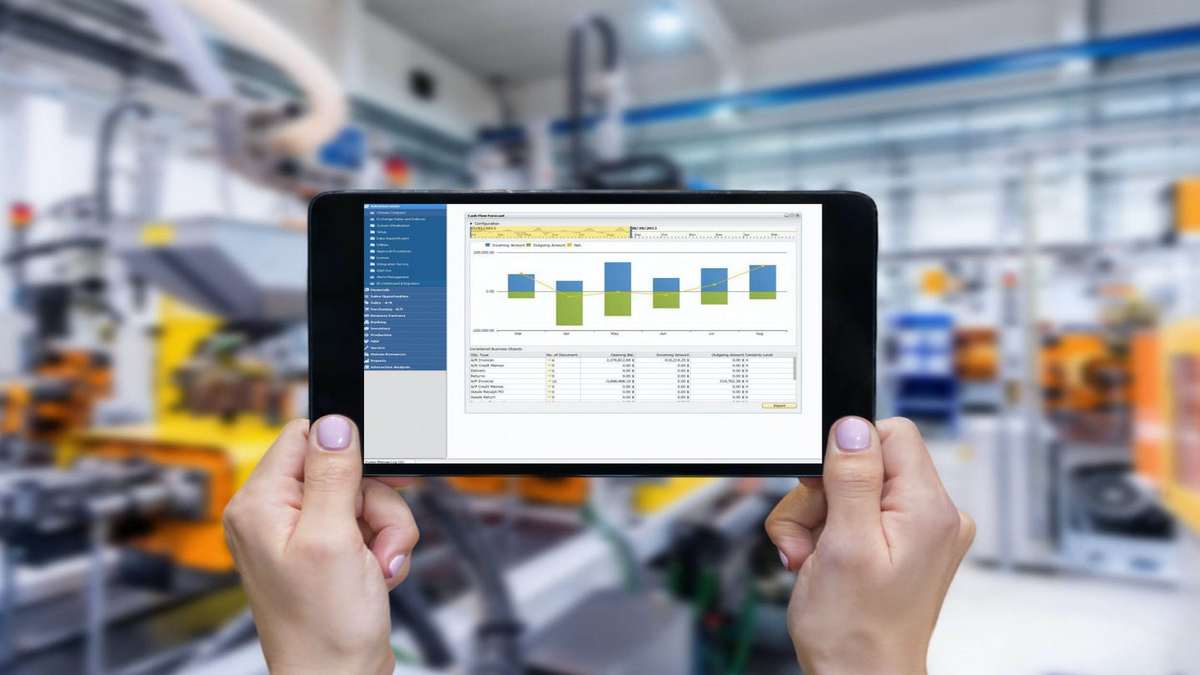
Manufacturing ERP software helps businesses control their operations by managing all inventory requirements and resources necessary to meet customers’ demands, while maintaining lean inventory levels. This means that businesses can improve their efficiency, have access to real-time information about their operations, and ensure proper intra- and inter-departmental communication.
But what exactly is manufacturing ERP software and what features are essential to successfully improve your business’ profitability?
What is a Manufacturing ERP software?
A manufacturing ERP software is designed to do three main things:
- Minimise production lead time
- Optimize inventory levels
- Maximize service levels
Simply put, this means that a manufacturing ERP system’s main job is to improve your business’ effectiveness by avoiding over- and understocking, keeping operations running smoothly, mitigating waste, and optimizing your resources.
A good manufacturing ERP software can take a business to new heights by identifying wasted resources such as time, money, or employee time and helping you convert work into cash more quickly.
What are the advantages of using a manufacturing ERP system?
It is clear that using software helps manufacturing business scale, optimize operations, and subsequently improve profitability. But with the wide array of options available on the market, how can you make sure you choose the right one for your particular business’ needs? Here are 3 simple features any manufacturing ERP software should have.
1. Real-time inventory management
Your manufacturing ERP system must help you avoid stock-outs and overstocking. It should offer total visibility of your raw materials and finished goods throughout various warehouses, set reorder points, manage product variants, and use barcodes to receive stock.
2. Production planning and scheduling
Your manufacturing ERP software should allow you to create bills of materials, allocate materials to your sales orders, and achieve efficient sales order fulfillment. You should also get accurate calculations of completion dates and be able to keep your sales teams informed.
3. Accurate costing
Your manufacturing ERP software should help you get an accurate view of your manufacturing costs, based on your bill of materials, production operations, and employee costs. This helps you calculate the cost of goods sold and ensure product product margins.
4. Tracing expiry dates
Your manufacturing ERP software should help you stay on top of your expiry stock, by allowing you to quickly locate items across various warehouses, trace faulty batches, materials, and products, and always have effective quality assurance and recalls.
5. Seamless integrations and API
Your manufacturing ERP software should act as a single point-of-truth for your business. This means it should integrate with other business essentials, such as e-commerce platforms (e.g. Shopify, WordPress), accounting tools (e.g. Xero, QuickBooks), shipping software (e.g. ShipStation), or marketplaces (e.g. Amazon, Etsy). If you need even further customization, you should make sure the manufacturing ERP software offers an open API to connect other tools, create workflows, and essentially streamline your operations.
Final Thoughts:
It is not an easy task to find the right manufacturing ERP software for your business. Before deciding to implement a specific solution, make sure to analyse your business’ specific needs and available budget. Then, find a couple of potential options, and make sure to check customer reviews, perhaps interview vendors, and make an account for a free trial. Getting a feel for how the product actually works is key to finding a good system.



